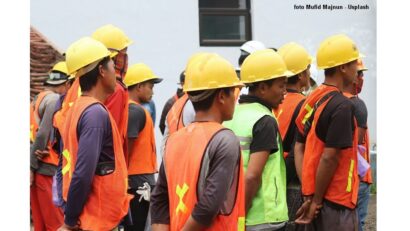Transplant surgeries and organ donation in Romania
Romania is still facing a crisis of organ donors.

România Internațional, 05.12.2018, 13:53
In the past few years, their number has dropped almost five times. Consequently, the number of transplants also decreased from several hundreds in the past years to several dozens at present. A lack of transparency in the system has been signaled, and there are suspicions of organ trafficking, of some patients being left to die in order for other patients to live. Moreover, suspicions have also been fuelled by the fact that many organ transplantations beneficiaries were rich people, while poor patients, although on the waiting list for years, stood zero chances of receiving an organ. These are apparently the reasons for a low interest in organ donation in Romania.
More than 500 patients in need of an organ died in Romania last year alone. In 2016 Romania was the last but one in Europe in terms of number of organ donors per one million inhabitants. This year, 102 kidney transplants, 46 liver transplants, 3 lung transplants and 5 heart transplants have been performed in Romania, while Hungary has reported 60 heart transplants since the start of the year. So, the number of transplants performed in Romania is way too small given the large number of sick people, says Anca Baculea, head of the National Transplant Agency:
Anca Baculea: “Indeed, the number of transplant surgeries has dropped significantly in the past two years, following a decrease in the number of brain dead donors. For this reason, we have had meetings with transplant coordinators and anaesthetists, who are tasked with identifying possible brain dead donors, in order to find the reasons behind this sharp decrease. Probably, one of the strongest reasons is the lack of the family’s consent for organ donation, and this may also be a consequence of the negative media reports in the previous years. This is why we’ve decided we should collaborate with the media and have professionals in the field explain the situation in TV and radio shows, raise awareness of this problem and make people understand that organ donation, under terribly difficult and painful circumstances, is a noble gesture that can save many lives.”
In Romania, out of the total 41 medical units that hold the license for transplants, only 11 have performed such surgeries this year. Anca Baculea has voiced concern that, in spite of the fact that 160 potential donors have been identified this year, the organs of only 59 patients have been procured, with the other patients not being eligible or the family refusing to give their consent.
Anca Baculea: “More than 5,000 patients are on a waiting list for a transplant. Around 4,000 patients are waiting for a kidney transplant, more than 500 for a liver transplant and more than 30 for a heart transplant. We have a number of potential donors, but at the moment, the real donors are 59, for whom the families have given their consent for organ procurement. Indeed, the number is very small, as compared to the previous years, when we even had as many as 130-150 donors. 59 donors is a very small number, but I can give you good news. After we got together in Cluj in those meetings, in November, we have already registered 12 donors in brain death from whom organs were taken. So, 12 patients in a month indicate that we will have a much greater number of donors and of organ transplants, respectively.”
Healthcare specialists have urged Romanians to include their names on the Volunteer Donors Register, to give their consent while still alive, for organ procurement. So, the moment a person experiences brain death, they become donors by default, and no consent on the part of the family is needed. The National Transplant Agency has also pointed to the lack of a single list, at national level, for each organ. A solution to this problem could be provided by the new Transplant Law, soon to be examined by the Government.
The aforementioned law also includes the reorganization of the National Transplant Agency, Anca Baculea also said: ”Right now we do not have national lists, we have transplant waiting lists for each center. At the National Transplant Agency we have the lists compiled the moment the medical doctor places the patient on the waiting list, through the National Transplant Register and a single code is ascribed to them, provided by the National Transplant Agency. This is how we can have their registered numbers. But the centers do not have a national list, as each center has certain specific criteria, according to which patients are included or not on those waiting lists. So, there’s no cohesion nationwide, and this is exactly what we want to achieve. Right now we are in the process of setting up a National Transplant Register, because we want to include in this Register another one of living donors, a Register of brain dead donors, national waiting lists, as well as a Register of transplanted patients, so that we may know exactly what their post-transplant condition is, so that they may be monitored.”
Because we do not have enough donors, Romania is not a member of Eurotransplant, an organization based in the Netherlands, with eight member countries where the organ transplantation system functions very well. Meanwhile, the Transplant Law is expected to come into force by the end of the year. According to the new draft law, the single national register will be taken into account. Patients will be selected in keeping with the seriousness of the case, but also following ethical criteria, which means that an organ procured from a child will no longer reach an adult person, should another child need such an organ. The authorities will thus encourage people to give their consent for organ procurement from patients experiencing brain death, so that the number of transplant surgeries may increase.






























